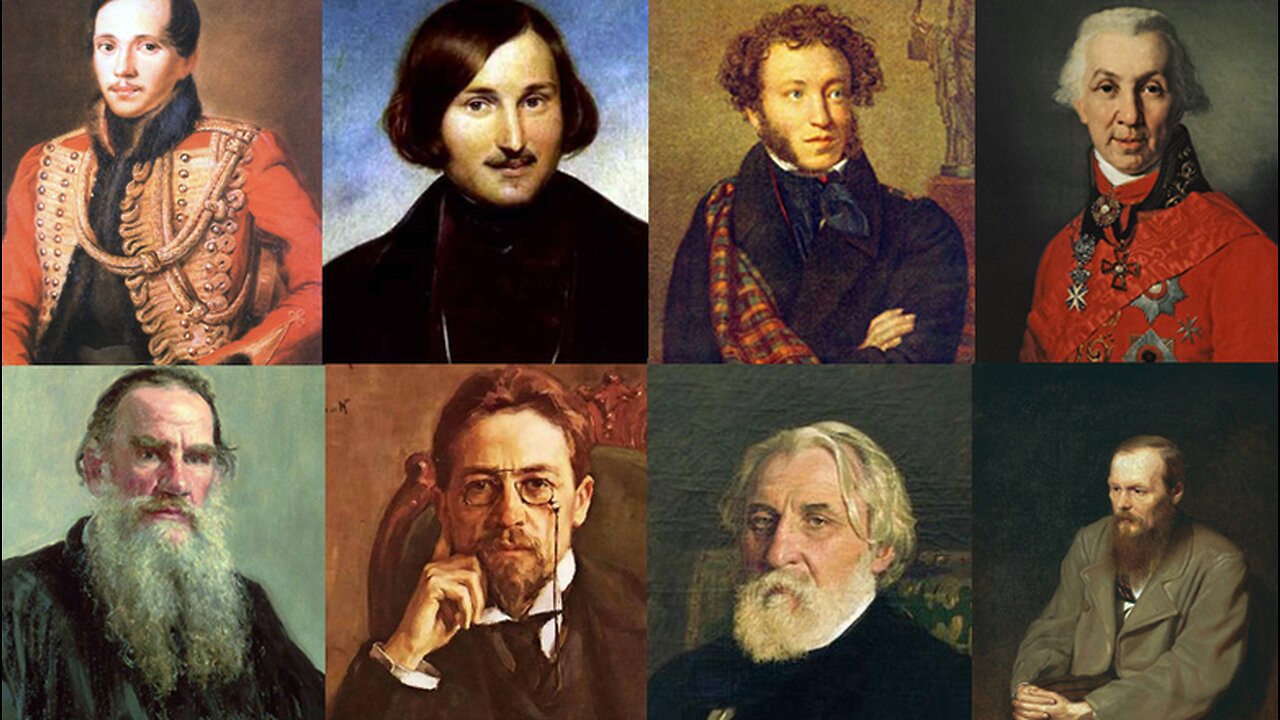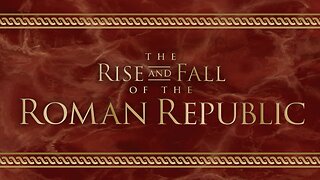Premium Only Content

Classics of Russian Literature | The Poet In and Beyond Society (Lecture 34)
Lecture 34: The title of Doctor Zhivago includes the old form of the genitive case in the word for “alive.” This genitive is also used as the accusative only for animate words attached to living humans or animals. In short, Pasternak is talking about life itself in its oldest, traditional form. Finding himself in a society calling itself socialist, with full value assigned to the collective, the poet - referring both to the title character and the author - wants to establish himself as an individual, separate from the collective. Repeatedly, Soviet society wants to draft the doctor, who creates some of Pasternak’s best poetry, into its over-organized and overarching civitas. The result is a continuous struggle, which cannot be diverted by marriage or love affairs, by political propaganda, by warfare, or even by the full powers of nature herself. When the poet sees the beauty of the snowbound Russian woods, he uses it to separate himself from the world around him. The result leads to isolation, poetry of the first order, and death.
Suggested Reading:
Victor Erlich, ed., Pasternak: A Collection of Critical Essays.
Ronald Hingley, Pasternak: A Biography.
Boris Pasternak, Doctor Zhivago (a novel and series of poems), with prose translated by Max Hayward and Manya Harari and poems translated by Bernard Guerney.
-
 18:01
18:01
The Great Courses
30 days agoThe Rise And Fall Of The Roman Republic | The Roman Constitution (Lecture 4)
1871 -
 1:05:43
1:05:43
Flyover Conservatives
1 day agoFederal Reserve on the Chopping Block—Trump’s Boldest Move Yet! - Floyd Brown, Western Journal | FOC Show
48.4K5 -
 2:50:40
2:50:40
Melonie Mac
10 hours agoGo Boom Live Ep 38!
43.7K2 -
 11:08
11:08
China Uncensored
9 hours agoXi Jinping's Greatest Fear
18.5K8 -
 2:11:20
2:11:20
I_Came_With_Fire_Podcast
14 hours agoFar Left TROJAN HORSE | SPECIAL Forces in MEXICO | GERMANY under FIRE
14.8K12 -
 1:41:00
1:41:00
Darkhorse Podcast
11 hours agoIf Only We’d Known: The 265th Evolutionary Lens with Bret Weinstein and Heather Heying
130K34 -
 1:58:29
1:58:29
Conspiracy Pilled
3 days agoThe Vaccine Conversation (S5 - Ep17)
52.3K2 -
 11:22
11:22
Tundra Tactical
8 hours ago $3.49 earnedUSA vs Canada HOCKEY Fight: The Real PRIDE Fighting.
57.9K8 -
 54:43
54:43
LFA TV
1 day agoWhy Exposing Waste and Fraud Terrifies the Beltway | TRUMPET DAILY 2.19.25 7PM
54K5 -
 1:01:13
1:01:13
Candace Show Podcast
10 hours agoBlake Lively's BOMBSHELL Legal Filing | Candace Ep 149
124K147